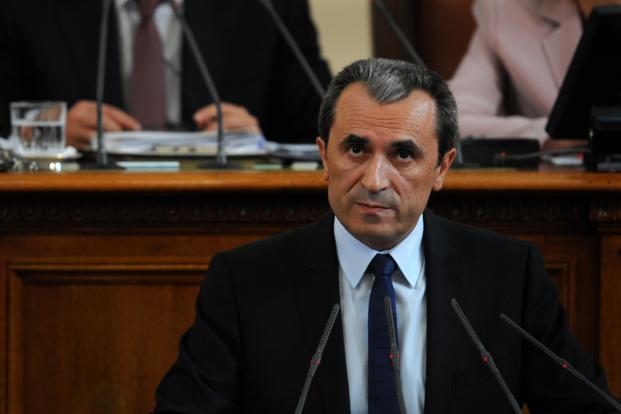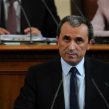
South Stream Brings Down Bulgaria’s Government
Publication: Eurasia Daily Monitor Volume: 11 Issue: 112
By:

Bulgaria is heading for new parliamentary elections as the troubled governing coalition fell apart one year into its mandate. This development was not caused by the daily anti-government protests that have continued for over a year. Indeed, the ruling elite has paid little attention to the demands of civil society. Rather, the government was brought down by the withdrawal of the junior coalition partner, the ethnic-Turkish Movement for Rights and Freedoms (MRF), following the Socialist party’s poor results in the European Parliamentary elections in May. The Socialists gained only four seats—as many as the Turkish party—while the opposition Citizens for European Development of Bulgaria (GERB) won six seats in the European legislature (EuropeDecides.eu, May 25).
But the real reason for the coalition split was the pronounced pro-Russian policy of the Socialist party in support of the South Stream gas pipeline project, which put Sofia into a dispute with the European Union. Defending a project that Moscow was trying to implement in violation of EU laws, particularly at a time when Russia unilaterally annexed Crimea and launched a proxy war in eastern Ukraine, was clearly at odds with EU policy. As Bulgarian political analyst Antoniy Galabov said, “The MRF in such situations usually takes the Euro-Atlantic position, and one can presume that it would defend Bulgaria’s national interests” (Information Agency Focus, June 8).
The Turkish party has two vital interests linked with the EU: maintaining the electoral support of Bulgarian Turks by making sure their rights are protected (and this can only be guaranteed if Bulgaria is an EU member); and continuing to benefit from EU development funds, which enriched many in the MRF leadership as well as a related circle of businesses. On June 3, the EU suspended payments for the “Regional Development” program in Bulgaria because of management and control problems. Funds for the “Environment” program have been frozen since November 2013. Bulgaria may face an EU funds freeze worth 1.5–3 billion euros ($2–4 billion), according to Lilyana Pavlova, a member of parliament (MP) of the center-right party GERB and former regional development minister (Sofia News Agency, June 4; June 5).
On June 17, the political crisis was discussed at a five-hour meeting of the president’s Council on National Security. The political parties represented in parliament agreed to hold elections between September 28 and October 12. But the cabinet is not in a hurry to hand in its resignation. Reportedly, Prime Minister Plamen Oresharski plans to hand over power precisely two months before the election date, which means the end of July or early August. Evidently, the agony of the Bulgarian political crisis, which started one year ago with massive public protests, is bound to continue through most of the summer (Sega Online, June 17).
Meanwhile, Bulgaria’s political turmoil has taken a dangerous turn. As South Stream was stopped and the government coalition partners separated, two oligarchs with significant political influence began a public fight. The first oligarch is the notorious media magnate and Turkish party MP Delyan Peevski, whose appointment as National Security Chairman on June 14, 2013, caused the longest public protest in Bulgaria’s history, continuing until today. The second is his former partner and creditor Tsvetan Vasilev, chairman of the private Corporate Commercial Bank that holds the capital of most Bulgarian state companies, especially in the energy sector.
Peevski accused Vasilev of conspiracy to assassinate him. Vasilev wisely stayed in Austria, so the Bulgarian police arrested three other people allegedly related to the assassination plot against Peevski. The Prosecutor’s office initially argued the plot was, indeed, ordered by Vasilev but later released the detainees and recognized it had committed “a mistake.” The case did not hold up in court, and the three arrested individuals were released (Sofia News Agency, June 19). However, the mutual accusations of the two businessmen unveiled shady crediting practices at the Corporate Commercial Bank that benefited bogus companies opaquely related to Peevski. Capital Daily Commented that the scheme confirmed what many investigative journalists have suspected all along—that the process of “state capture” by corrupt business practices backed by political connections is well advanced in Bulgaria (Capital Daily, June 19).
Furthermore, the Bulgarian National Bank (BNB) Deputy Governor in charge of the Banking Supervision Department, Tsvetan Gounev, was charged with abuse of office for failing to take supervisory measures vis-à-vis Corporate Commercial Bank’s 19 non-performing loans (BTA, June 18).
But nobody expected what happened next, and particularly not the potential outcome of this complicated political, banking and moral crisis. Despite the BNB’s efforts to salvage the situation, the Corporate Commercial Bank admitted that it could not meet its obligations, as its bank clients were hurriedly withdrawing their deposits. As a result, the Corporate Commercial Bank was put under the supervision of the BNB on June 20 for a period of three months, its governor Ivan Iskrov announced at a nationally televised press conference. According to the rules, the private bank stopped all activities and all bank accounts were frozen for three months, while its governing and oversight boards were dismissed and replaced by BNB-appointed temporary governors (Bulgarian National Television, June 20).
The problem is that the Corporate Commercial Bank used to service some of the major Bulgarian state companies, particularly those in the energy sector. All working capital of these companies is now blocked; questions remain whether it will become available at all. The major shareholders with more than 10 percent of shares in the bank will have no right to vote on any decision during the period of supervision. But shareholders with under 10-percent ownership are allowed to vote.
And a critical minority shareholder is the Russian state-owned Foreign Trade Bank (VTB), the bank closely related to Russian President Vladimir Putin and his former colleagues from the Soviet KGB. The VTB’s European branch immediately expressed interest to buy the troubled bank, which was confirmed by the Governor of the Bulgarian National Bank. This acquisition in Sofia could give it control over significant Bulgarian energy companies with debts to Corporate Commercial Bank, among them the Bulgarian Energy Holding. Meanwhile, VTB Bank announced that Simeon Djankov, Bulgaria’s former finance minister in the previous center-right GERB government (2009–2013) has joined its Supervisory Council in Moscow. Another former Bulgarian finance minister, Milen Velchev (2001–2005), serves as head of VTB’s Sofia office (Blitz.com, Sofia News Agency, June 20).
The bank crisis did not happen by chance, but by design. Moscow looks set to exact a huge price from Bulgaria as a consequence of Sofia stopping the South Stream gas pipeline project. The foot soldiers in Russia’s proxy war will be Bulgaria’s own former high-ranking state officials.




